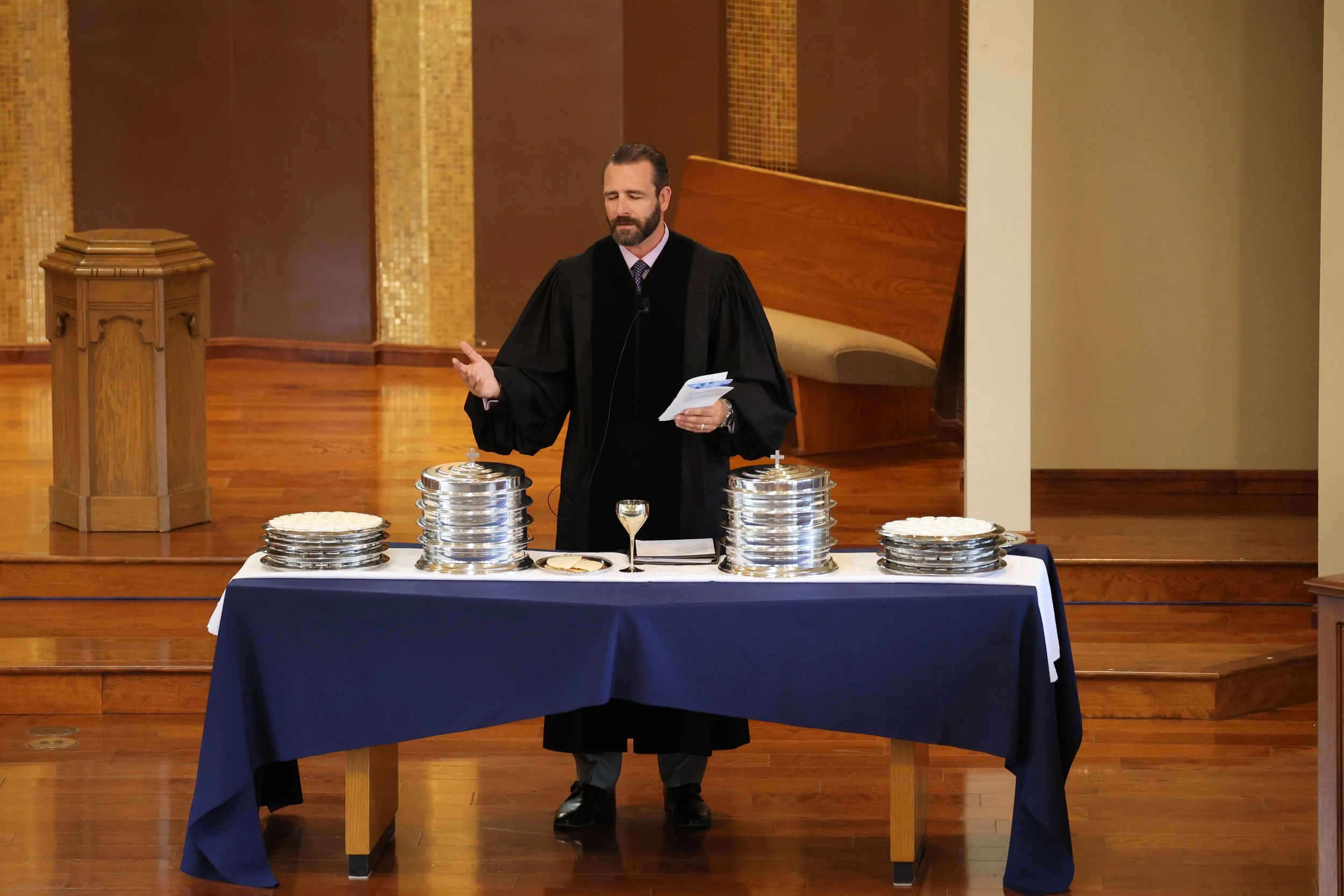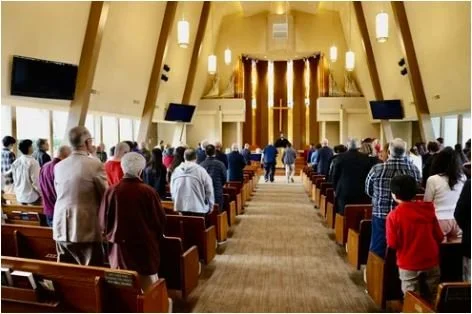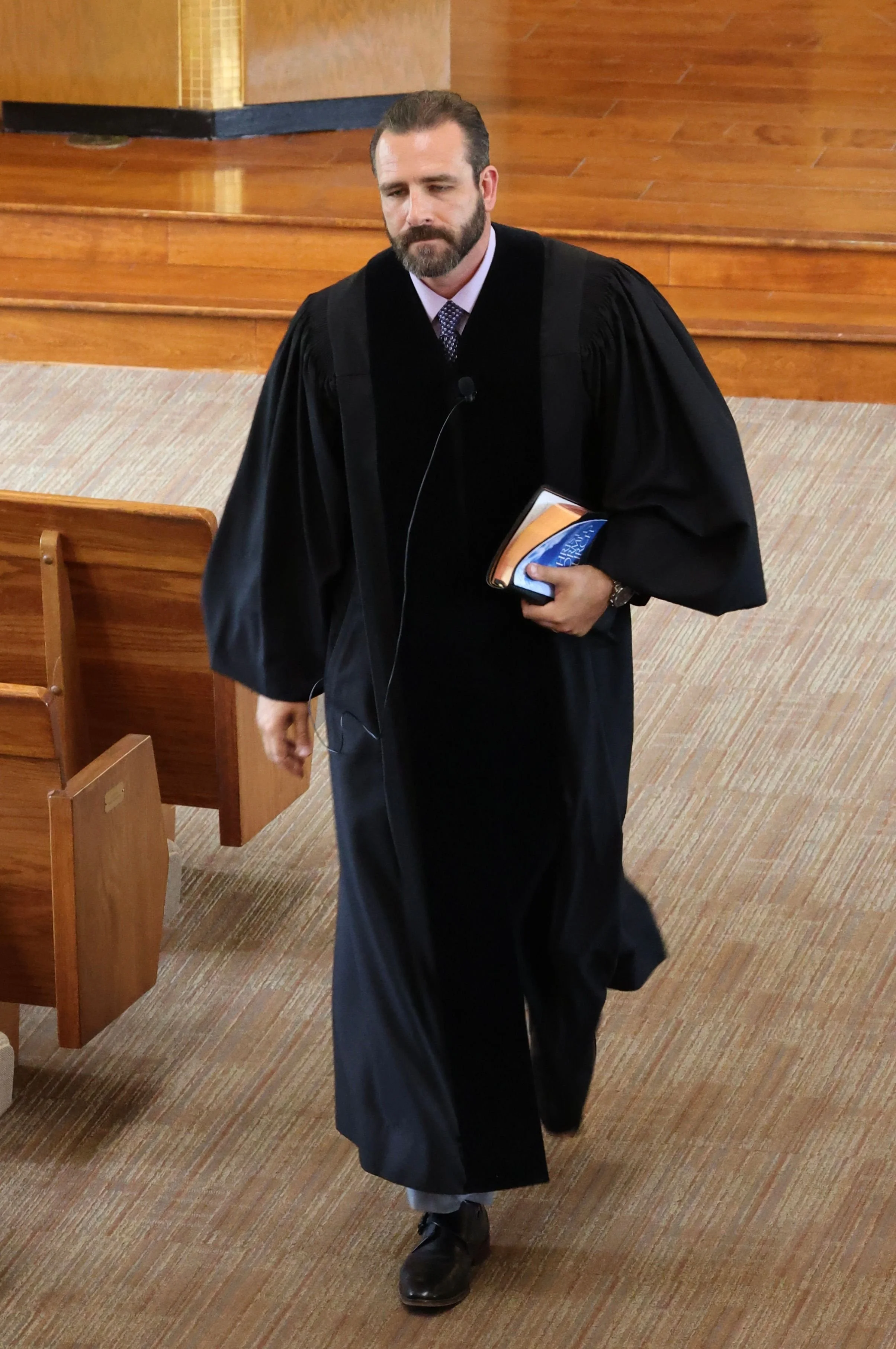Welcome to Christ Reformed Church in Anaheim, CA
900 South Sunkist Street, Anaheim, CA 92806 (714) 538-1057
Morning worship: 10:00 AM / Afternoon worship 12:00 PM
We Worship the Triune God According to His Word
We come together as the covenant people of God to worship him with reverence and awe (cf. Heb. 12:28-29).
The Father and the Son send us the Spirit, who unites us in the preaching of the Law and Gospel and the administration of the sacraments. By his Spirit we are more and more united to Christ in his mystical body; therefore we also forever live and are governed by his Spirit, as the members of our body are by one soul, to the glory of God the Father.
We have the privilege of worshipping together with people of all ages, and of diverse ethnic backgrounds, cultures and nationalities.
We seek to please God through the singing of God honoring hymns and Psalms, and by offering up prayers of praise and supplication. We seek to recount God's own mighty acts by reading from the whole of Scripture with the eager anticipation that God still speaks to us through his word.
Our worship service is liturgical, the elements of which include:
Call to Worship (a Psalm), Invocation, God’s Greeting, The Lord’s Prayer, Hymn of Praise
Reading of God’s Law, General Confession, Declaration of Pardon, and The Creed
Pastoral Prayer, Reading of the Old and New Testaments, Sermon
Hymn of Preparation, The Lord’s Supper, and Hymn of Thanksgiving
Offerings, Doxology, and Benediction
Christ-Centered, Redemptive-Historical, Expository Preaching
Our sermons are Christ centered, with special care given to correctly distinguish between Law and Gospel.
The sermons are Christ-centered because, following Christ’s example in Luke 24:27, He is found and preached from every text of the Bible: beginning with Moses, and all the Prophets, in all Scriptures ( i.e., from Genesis to Revelation).
They are redemptive-historical because they focus on God’ plan of salvation from the Garden of Eden to the New Jerusalem; all passages are interpreted in the wider context of the historical drama of redemption.
They are also expository because, ordinarily, they will follow a book of Scripture from beginning to end.
Weekly Administration of the Lord’s Supper
Following the biblical pattern (as seen, e.g., in Acts 2:42; 20:7; 1 Cor 11:33), the practice of the apostolic church, and the advice of the Reformers, our Sunday services will always include the administration of the Lord’s Supper, which is the sign and seal of the covenant, and the visible gospel that confirms God's promises in the preached Word.
The Lord’s Supper is the visible gospel. It is not a mere symbol of a Savior who is not really there, but a sign and seal of God’s promise of salvation in Christ, and the means through which Christ imparts his very flesh and very blood to us through the Spirit.
The sacrament is not merely a reminder that Jesus died for us – it is the real, life giving communion with him, in his flesh and blood given to us by the Holy Spirit. In the Lord’s Supper, we do remember his sacrifice for us, but we also receive his grace through the spiritual sharing in the body and blood of Christ.
In the administration of the bread and wine, God more fully declares, assures, and seals to us the promise of the Gospel: that He grants us out of free grace the forgiveness of sins and everlasting life, for the sake of the one sacrifice of Christ accomplished on the cross. To all those who are united to Christ through faith, he is truly, objectively, really, and spiritually present in the elements of bread and wine.
For more information about the Lord's Supper and who can partake please visit our Sunday Morning and Afternoon Services page.
Instruction in the Basic Doctrines of the Christian Faith
It is very important to look at the big picture and have it clearly in mind, so that we do not bog down in details, or get endlessly sidetracked by some unimportant or irrelevant issue. The theological categories given to us through catechism, help us to make sense out of the myriad of details found in the Scriptures themselves. Confessions, creeds and catechisms are invaluable tools to help us learn about the important themes and doctrines that are in Scripture.







